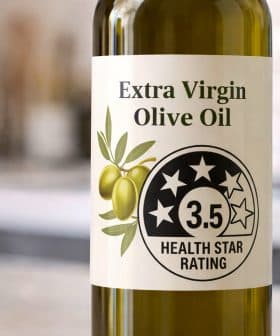Polyphenol in Olive Oil May Help Fight Allergies
Already approved use for its preventive effect on LDL oxidation, the possibility of using hydroxytyrosol as a nutrient for allergy prevention broadens the opportunities for olive oil therapeutic applications to a whole new horizon.
 13.8K reads
13.8K readsStudies have shown that the Mediterranean diet, rich in olive oil containing hydroxytyrosol, is associated with a lower incidence of cardiovascular disease and other inflammatory diseases. Recent research suggests that hydroxytyrosol in olive oil extract may play a key role in combating allergy reactions by stimulating an immune response that increases IL-10 secretion.
Over the past two decades emerging empirical evidence has strongly associated Mediterranean diet (MD) to lower incidence of specifically cardiovascular disease as well as other common inflammatory diseases. The MD primary source of fat is olive oil which is abundant in polyphenols such as hydroxytyrosol (HT) and tyrosol representing about 30 percent of the total phenol content of virgin olive oil. Of note, hydroxytyrosol is also one of the major compounds in olive mill waste and olive leaf extract.
See Also:Olive Oil Health Benefits
Hydroxytyrosol in olive oil has been identified as the most potent antioxidant in nature out of all the polyphenols in vitro. In particular, HT has been found to be the key anti-inflammatory component of olive oil extract and previously shown to inhibit the expression of proinflammatory mediators, cytokines and chemokines.
While olive extracts have been demonstrated to act as antihistamines by blocking histamine receptors and thereby speculated to play a role in allergy due to anti-inflammatory properties, however, the component of the olive extract and the underlying mechanism has never been investigated until now.
A new study published in Immunobiology has demonstrated that the hydroxytyrosol in olive oil extract may play a central role in combating allergy reactions. The researchers investigated the potential of pure HT for eliciting an immune response towards one of the major Parietaria pollen allergens Par j 1 in healthy volunteers.
In the Mediterranean region, one of the most common allergenic molecules is Parietaria Judaica pollen with Par j 1 and Par j2 as its main allergen components which have been shown recently to activate the immune cascade at the molecular level.
In a previous study, the findings of this group revealed that the Par j 1 allergen activated the human immune response resulting in secretion of IFN‑y and IL-10 cytokines in healthy volunteers.
In their most recent study, the Italian researchers first determined the toxicity profile of pure HT in vitro by simulating normal levels of phenol-rich olive oil present in human plasma following its consumption and found that the pure polyphenol HT had no toxic effects on human cell lines. Next, they showed that incubation of human Peripheral Blood Mononuclear Cells with pure HT stimulated a strong response from the cytokine IL-10 during a natural immune response to the Par j1 allergen.
According to the researchers, these results represented the first ever findings on HT modulation of “an allergen-specific immune response potentially able to strengthen an anti-inflammatory phenotype…via an increase IL-10 secretion.”
The researchers’ take-home message was, therefore “further studies to elaborate the pharmacological mechanisms behind the possibility of using HT as a nutrient for allergy prevention in addition to its already approved use for its preventive effect on LDL oxidation” broadens the opportunities for olive oil therapeutic applications to a whole new horizon.
With continued discoveries of its multiple health benefits, the olive oil polyphenol HT, despite being a small molecule, is turning out to be one of the most powerful nutrient dense phytochemicals found in nature.









